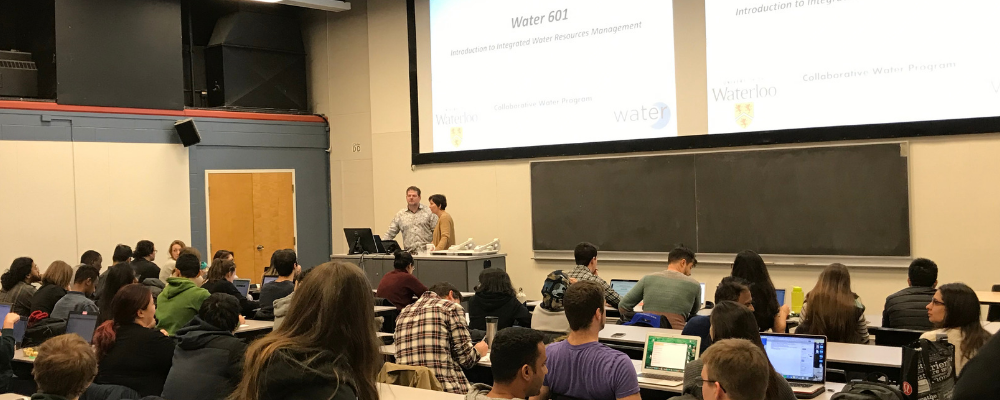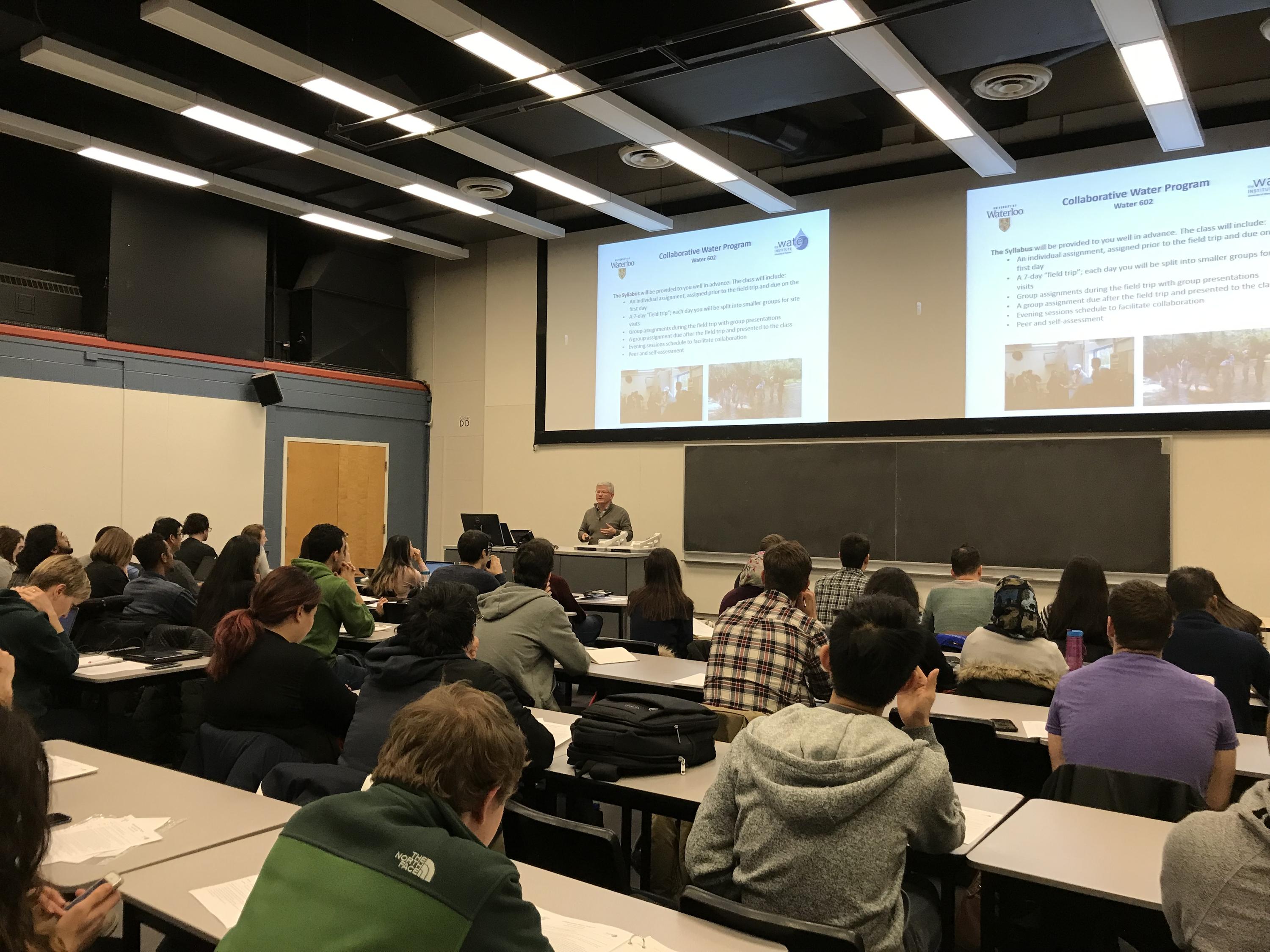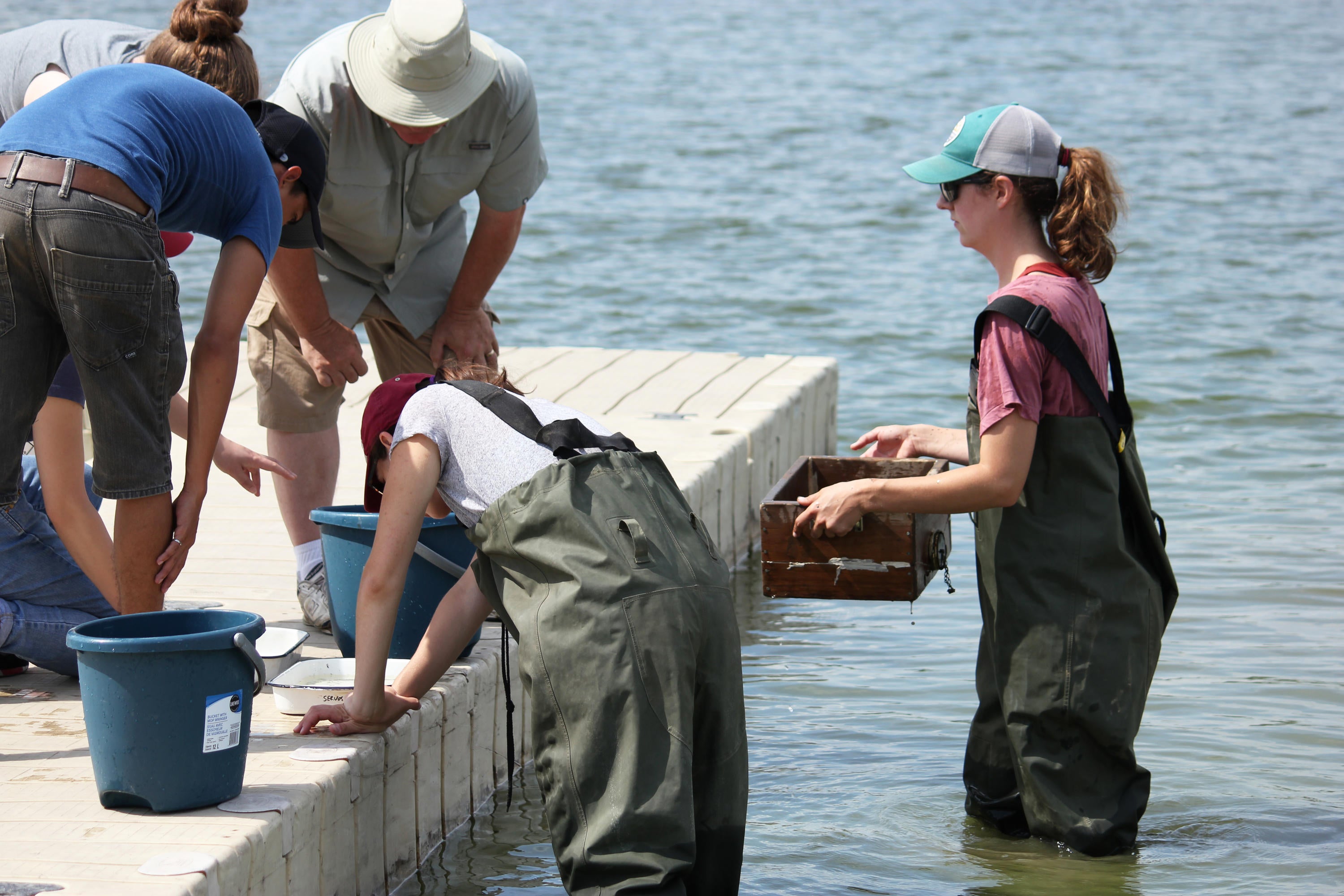On Friday, January 11, 2019, 67 graduate students from all six University of Waterloo faculties stepped into a classroom and began their journey in the Collaborative Water Program (CWP). This program is jointly offered by 11 University of Waterloo departments and schools, making it the most interdisciplinary graduate program focusing on water in Canada.

WATER 601 instructors, William Annable and Sarah Wolfe, open the first lecture for graduate students in the Collaborative Water Program.
“We need people with deep disciplinary expertise to tackle our water problems, but we also need people who can work with specialists from other fields, and who can see the ways in which water problems cut across those disciplines,” said Rob de Loë, Water Institute member and professor in Waterloo’s School of Environment, Resources and Sustainability, and director of the CWP. “That’s what the Collaborative Water Program offers Waterloo students – a truly interdisciplinary experience.”
Since the launch of the CWP in 2013-14, 255 graduate students have enrolled in the University of Waterloo’s most academically diverse graduate program. This year’s cohort is the largest ever, with students from a variety of disciplines including public health and health systems, geography and environmental management, applied mathematics, economics, and civil and environmental engineering.

WATER 602 instructor, Mark Servos, introduces himself and the course to the new cohort of students.
“This is the first class I’ve been a part of at Waterloo where there are so many students from different academic disciplines in one lecture hall,” said current CWP student, Tyler Hampton, PhD student from the Department of Earth and Environmental Sciences. “I’m looking forward to learning how to solve real-world water problems from my new peers who can bring different perspectives to these issues, while offering my expertise to those outside of my field.”
Collaborative Water Program students complete their specialist training in their respective home departments or schools, while working with students from a variety of disciplines in two interdisciplinary courses: WATER 601, a classroom-based course, and WATER 602 which takes place in the Grand River Watershed. These courses capture both theoretical and practical components, including in-class lectures, field-work, interdisciplinary group work and individual research seminars.

Students in WATER 602, getting hands-on experience in the Grand River Watershed.
“The amount I’ve learned simply by spending so much time with my peers from such varied disciplines is immeasurable,” said Amy Dietrich, MES graduate from the Department of Geography and Environmental Management. “Spending time getting to know my classmates through WATER 601 and 602, even simply by being exposed to the way they think and the questions they ask, has helped me broaden my perspectives on issues and connect with people whom I would have likely never have crossed paths with otherwise.”
Students that complete the CWP leave as broad-minded specialists, ready to tackle complex problems in the water sector. CWP graduates are currently working in the public, private and civil sectors, using the knowledge gained from Waterloo to help make an impact in the world.
Students interested in learning more about the Collaborative Water Program can check out the Collaborative Water Program website, brochure, or contact the Water Institute.